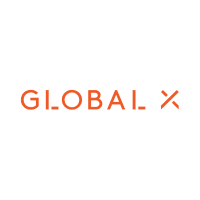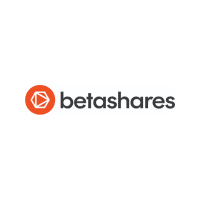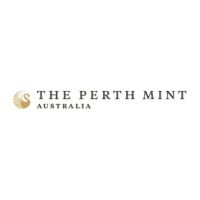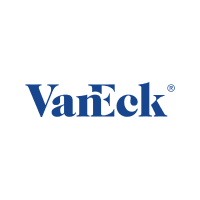With inflation, conflict in Ukraine and the Middle East and rising rates dominating markets, investors have turned to alternative asset classes to gain returns. This is where a commodity exchange-traded fund (ETF) can help.
Commodities are generally inflation hedges because they often move hand-in-hand with inflation. At the same time, commodity prices rarely follow stocks and bonds. If the price of a stock or bond is trailing down, this may be the time to buy commodities.
However, it can be difficult to know exactly which commodity to trade at any given time. Instead, many investors turn to commodity ETFs as a easy way to get diversified exposure.
To help get you started, here are some of the best-performing commodity ETFs on the ASX.





What is a commodity ETF?
A commodity ETF is an exchange-traded fund that tracks the price of one or more physical commodities, such as precious metals, crops and other resources.
There are a number of commodity ETFs that trade on the Australian Securities Exchange (ASX) and offer exposure to things like gold, silver, natural gas, oil and wheat.
How do commodity ETFs work?
The main benefit of commodity ETFs is they allow you to invest in a commodity without having to purchase and hold it yourself.
In most cases, it is not practical to directly invest in commodities. After all, if you want to buy oil as an investment, you'd need somewhere to put it, which is likely to be both expensive and inconvenient.
By comparison, a commodity ETF tracks the performance of the underlying resource, either by buying and holding the commodity on behalf of investors, or by getting exposure to the price of the commodity via the futures market.
As a result, ETFs are often the easiest, most cost-effective way to invest in things like gold, silver and oil.
What commodities do ETFs track?
You can find ETFs that track the following commodities and resources in Australia:
- Gold
- Silver
- Copper
- Lead
- Aluminium
- Catttle
- Wheat
- Soybeans
- Corn
- Gas
- Oil
Should you invest in commodity ETFs in 2026?
Commodity ETFs' main draw cards are that they can be a hedge against inflation.
This is because the price of popular commodities, such as oil and wheat, usually go up with inflation.
If inflation is high, as it has been in recent years, commodity ETFs are likely to perform well.
How to choose a commodity ETF
If you're looking to get started investing in commodity ETFs, there are a few things you should consider.
The first is to find an ETF that tracks the commodity you want to invest in. Some commodity ETFs will track a basket of resources, such as an agriculture ETF that tracks the price of multiple crops, or track a single commodity, like a gold bullion ETF.
Say you wanted to only get exposure to the price of gold, you'd want to find an ETF that specifically tracks the performance of gold bullion.
From there, you'll want to consider the cost of the ETF. Commodity ETFs often have higher management fees (MER) than stock-based ETFs, and high fees can eat into any potential return you'll make from holding the ETF.
Other things to keep in mind are the size of the fund, and that the ETF provider has a reputable history. You'll want to make sure the ETF has enough liquidity so that you won't have any issues selling it when the time comes.
How do you invest in commodity ETFs in Australia?
Commodity ETFs can be bought and sold just like a regular stock on the ASX. This means you'll need a share trading account in order to start investing. You can compare share trading platforms in the table below.
Once you have an account, you can search for the commodity ETF you want to buy on your trading platform, either by using the ETF name or ticker code. Once you've found the ETF, you can then enter how much you want to buy and complete the trade.
Where to buy commodity ETFs
You can use the table below to compare share trading platforms that offer commodity ETFs based on fees and tradeable assets.
Compare other products
We currently don't have that product, but here are others to consider:
How we picked theseFinder Score for share trading platforms
We've scored over 30 share trading platforms assessing them for their core features, fees, customer experience and accessibility. Our experts give each platform a score out of 10.
Important: The standard brokerage fee displayed is the trade cost for new customers to purchase $1,000 of either Australian or US shares. Where a platform charges different fees for both US and Australian shares we show the lower of the two. Where both CHESS sponsored and custodian shares are offered, we display the cheapest option.
Disclaimer: This information should not be interpreted as an endorsement of futures, stocks, ETFs, options or any specific provider, service or offering. It should not be relied upon as advice or construed as providing recommendations of any kind. Futures, stocks, ETFs and options trading involves substantial risk of loss and therefore are not appropriate for all investors. Past performance is not an indication of future results. Consider your own circumstances, and obtain your own advice, before making any trades.
Which commodity ETF is best for inflation?
One of the main reasons to invest in commodities is that the price is highly correlated to inflation.
Commodity prices typically rise hand-in-hand with inflation, making them by default a hedge against inflation risk. At the same time, they generally don't have a strong correlation to other assets such as bonds and stocks, which means they can also help you diversify your portfolio.
What about commodity futures?
This is where things can get a little confusing for investors.
A commodity futures contract is an agreement to buy or sell a predetermined amount of a commodity at a specific price sometime in the future.
A futures contract has a specific end date that tells the seller when they have to deliver the assets.
The futures contract is named on the month it expires, so if you're trading in November then it's a November futures contract.
However, investors in futures contracts have no intention of taking ownership of the asset. Instead, they plan to buy an offsetting contract at a price that will make them money.
They are taking an educated opinion on the direction the price will go.
Commodity ETFs generally do not invest in the physical commodity itself. Instead, they invest the cash they hold and enter swap contracts with one or more counterparties. This is to gain exposure to the performance of futures contracts over the relevant commodity or commodities.
Frequently asked questions
Invest in ETFs through an online broker
Compare other products
We currently don't have that product, but here are others to consider:
How we picked theseFinder Score for share trading platforms
We've scored over 30 share trading platforms assessing them for their core features, fees, customer experience and accessibility. Our experts give each platform a score out of 10.
Important: The standard brokerage fee displayed is the trade cost for new customers to purchase $1,000 of either Australian or US shares. Where a platform charges different fees for both US and Australian shares we show the lower of the two. Where both CHESS sponsored and custodian shares are offered, we display the cheapest option.
Sources
Ask a question
More guides on Finder
-
ETFs vs managed funds: Which is best for you?
ETFs are hot, Managed Funds are classic. But which one's actually better for your portfolio—and your wallet? Here's the Aussie lowdown.
-
How to buy Ethereum ETFs
You can already buy some Ethereum ETFs in Australia and more may be on the way soon.
-
The best ETF trading platforms in Australia (2026)
We've selected 5 top ETF brokers for Australians based on fees, features and available funds.
-
Best S&P 500 ETFs on the ASX
Your guide to the best ETFs offering exposure to S&P 500 companies.
-
How to buy Bitcoin ETFs
If you're looking to purchase Bitcoin ETFs but are not sure how, here is our explainer guide to buying the latest thematic ETF.
-
How to buy the iShares Core S&P 500
Steps to owning and managing iShares S&P 500 ETF units.
-
Best low cost ETFs on the ASX
These ETFs have the lowest fees on the market, but does that make them the best?
-
What are Australia’s ethical ETFs?
Here are the 10 most popular ESG ETF options currently listed on the ASX.
-
What are the best ETFs in Australia?
The best-performing ETF delivered a return of more than 155.87% over the last 12 months.



